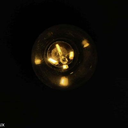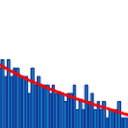stubbi • Nov 12, 2025
Cite Aqora Datasets with DOIs
Aqora now mints persistent DOIs with DataCite for every published dataset version. Cite exact versions, improve reproducibility, and keep datasets discoverable with machine-readable metadata.

Cite Aqora Datasets with DOIs
Aqora now mints persistent Digital Object Identifiers (DOI) for datasets. Every time you publish a dataset version on Aqora, a unique DOI is registered that you can cite in papers, reports, and documentation. The DOI always resolves to a stable landing page for that exact version, which helps reviewers, collaborators, and future you find the same artefact again.
What is new
Aqora has joined DataCite so that each published dataset version receives its own DOI. The DOI is created at publication time and is attached to the versioned landing page on aqora.io. That page exposes the core metadata, including title, creators, version, publication year, and a link to the files and documentation. Older versions stay citable and discoverable, and the latest version remains clearly identified.
What a DOI gives you
A DOI is a persistent identifier that does not change when URLs or storage locations change. It improves scholarly credit, makes datasets easier to discover in academic indexes, and clarifies exactly which version of a dataset a study used. This helps with replication, internal audits, and long term stewardship of results.
How it works on Aqora
When you publish a version, Aqora registers a DOI with DataCite and sets the DOI to resolve to the dataset version page on aqora.io. That page presents human readable metadata and machine readable markup for search engines and reference managers. If you update a dataset and publish a new version, a new DOI is created for that version. Each DOI remains active so historic versions can always be retrieved and cited.
If you withdraw a version, the DOI remains, and it resolves to a page that records the withdrawal status and the reason you provide. This preserves the scholarly record and avoids broken references.
If you withdraw a version, the DOI remains, and it resolves to a page that records the withdrawal status and the reason you provide. This preserves the scholarly record and avoids broken references.
How to cite an Aqora dataset
Every dataset page now includes a
Cite this dataset button with ready to copy BibTeXa format. You can also cite manually using a style you prefer. Replace the placeholders in the examples below with the values shown on your dataset page.BibTeX example
@dataset{creator:dataset:2025:1.0.0,
title = {Dataset Title},
author = {Creator, First and Collaborator, Second},
date = {2025-11-12},
year = {2025},
version = {1.0.0},
publisher = {Aqora},
doi = {10.XXXX/aqora.dataset-slug.v1.0},
url = {https://aqora.io/datasets/your-org/dataset-slug/versions/1.0},
urldate = {2025-11-12},
abstract = {A Testing dataset},
keywords = {Quantum Computing, Dataset},
license = {CC-BY-SA-4.0},
langid = {english}
}Versioning and permanence
Citations should always include the version so that readers can retrieve the exact artefact. Aqora keeps a permanent record of all published versions. The DOI for the latest version points to that specific version, and the dataset overview links across the full version history. If you want to reference the concept of a dataset without fixing a version, cite the latest version and state the access date in your text, then include the DOI and version in your references.
Metadata that travels with your dataset
DOIs carry structured metadata that improves discovery. Aqora registers creators, title, version label, publication year, publisher as Aqora, resource type as Dataset, and the landing page URL. The dataset page also includes Schema.org JSON-LD so search engines and reference managers can parse the same information.
Guidance for authors and reviewers
If you are preparing a manuscript, include the dataset DOI in your references and mention the version in your methods or data availability section. If you maintain a software repository that consumes the dataset, add the DOI to your README and CITATION file so downstream users inherit the correct reference. If you review a manuscript that used an Aqora dataset, check the version cited against the DOI landing page and confirm that the described files match.
Getting started
Create or open your dataset on Aqora, complete the metadata, and publish a version. The DOI appears on the version page immediately after publication. Use the Cite button to copy the reference in BibTeX format. If you update the files or documentation later, publish a new version so your citation record stays precise.
If you are part of a lab or an engineering team, consider setting a short internal policy. Decide when to publish a new version, how to phrase titles and version labels, and who is responsible for copying the DOI into papers, slide decks, and product documents. Clear habits keep your data lineage clean and save time during reviews.
If you are part of a lab or an engineering team, consider setting a short internal policy. Decide when to publish a new version, how to phrase titles and version labels, and who is responsible for copying the DOI into papers, slide decks, and product documents. Clear habits keep your data lineage clean and save time during reviews.
About DataCite support on Aqora
By registering DOIs with DataCite, Aqora connects your datasets to a global citation network. That network is used by publishers, repositories, and discovery services across research and industry. Your dataset gains a durable identity that outlives storage systems and hosting choices.
Publish a version and mint your DOI
Aqora was built to make quantum datasets easy to share, cite, and build upon. Publish a version today, copy the DOI, and include it in your next paper or project page. Your future collaborators will thank you.



